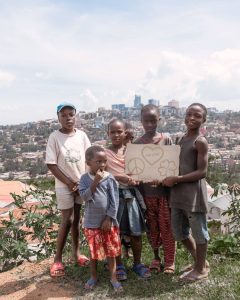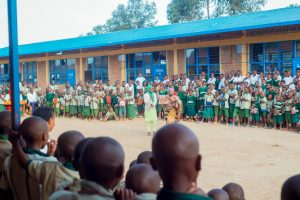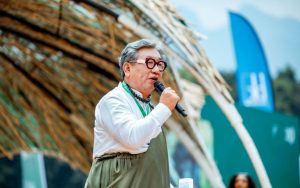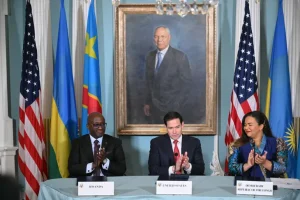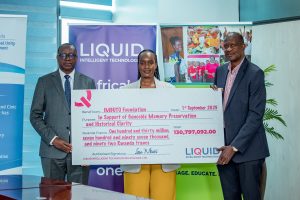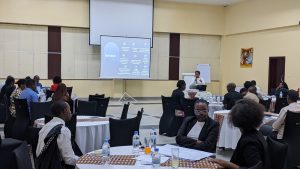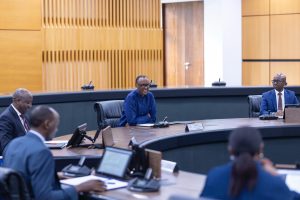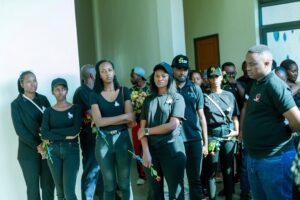When Home Becomes the Battlefield: Social Tensions Around Ex-Prisoners Reintegrated After the 1994 Genocide
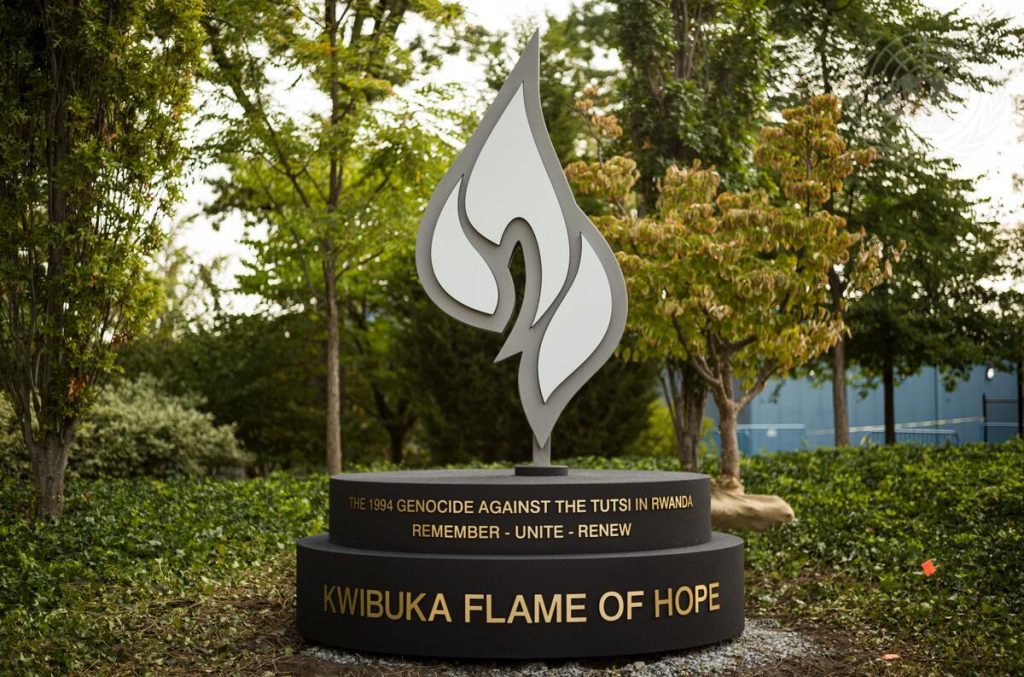
Kwibuka Flame of Hope Tribute to 1994 Genocide Against the Tutsi in Rwanda Installed at UN Headquarters. As every year, on April 7, Rwandans and friends of Rwanda across the world, join hands to begin a 100-days commemoration of the 1994 Genocide against the Tutsi in which over a million lives perished, under the theme “Remember, Unite, Renew.”
Thirty-one years after the 1994 Genocide against the Tutsi, Rwanda is celebrated worldwide as a model of post-conflict reconciliation. The country’s ambitious process of healing and rebuilding is often held up as an example for other nations emerging from mass violence.
At the center of this process were Gacaca courts, community-based tribunals revived in 2001 to handle the overwhelming backlog of genocide cases. With prisons holding more than 120,000 suspects and conventional courts incapable of processing them, Gacaca was designed to deliver swift justice. Local judges, known as inyangamugayo, presided over public hearings on village lawns (gacaca means “grass” in Kinyarwanda).
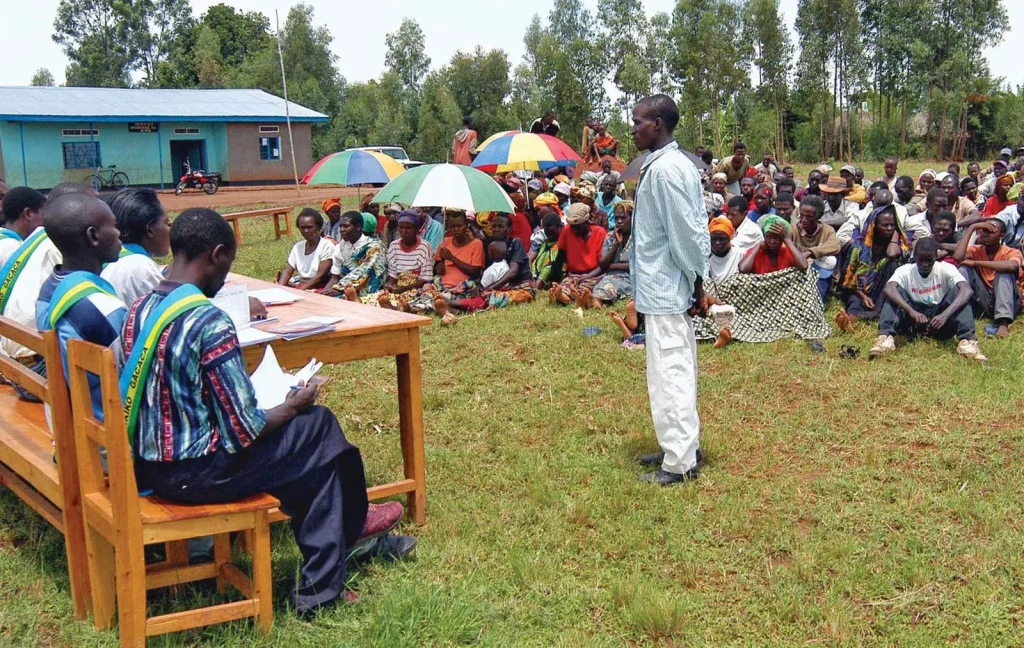
Confession and apology could reduce sentences, often leading to early release or community service. By 2012, Gacaca had tried over a million cases, unearthing truth and easing prison overcrowding.
Alongside this, the Rwanda Correctional Service (RCS) has introduced important rehabilitation and reintegration initiatives. Before release, especially for those who served long sentences, prisoners are required to undergo civic education and training where they are taught about national policies, social values, reconciliation, and how to live harmoniously with others.
Many pass through Ingando or Itorero ry’Igihugu solidarity camps, where they engage in discussions on unity, history, and citizenship. In addition, vocational training and psychosocial support are offered, and in some cases, ex-prisoners are placed in “halfway reintegration centers” that prepare them for life back in their communities. These measures show the government’s efforts to promote rehabilitation and peaceful coexistence, not only punishment.
But beneath this image of harmony, unspoken tensions and fear persist. Across rural Rwanda, some survivors recount chilling incidents that reopen old wounds: animals slaughtered, crops destroyed, homes attacked, and in some cases, survivors killed. The perpetrators are often ex-prisoners, raising questions about how deeply reconciliation has taken root in some hearts: thousands of perpetrators returned to live side by side with survivors of the very genocide they once committed.
Survivors Haunted by Attacks on Their Livelihoods
On April 11, 2023, in Rweru Sector of Bugesera District, survivor François Kigabo woke to a nightmare. Two cows he depended on for his family’s livelihood had been slaughtered in their barn during the night.
The man behind it was Stanislas Karerangabo, 52, a neighbor and former genocide prisoner released after confessing during Gacaca trials. He admitted to killing the cows.
“Waking up in the morning and finding my two cows slaughtered made me look back at what happened in 1994,” Kigabo told Top Africa News. “After all these years, there are still people who think about committing such barbaric acts again. It is horrifying.”
Kigabo said he regained composure only after the man was arrested. “I remembered that we have a unity government, that those who still harbor genocide ideology will not succeed.”

In 2021, survivor Chantal Nyiramporampoze from Ruhango Sector, Ruhango District, found her livelihood destroyed. Criminals had cut down 43 banana trees, cassava, and soybeans on her farmland measuring about 30 m²/20 m². Nothing was stolen; everything was left slashed and wasted.
“You can’t imagine waking up and going to the field to find all your crops cut down,” she said. “If a thief steals because he is hungry, you can understand. But someone who destroys and leaves, it means they don’t want you in peace.”
The destruction rekindled memories of 1994, when her brother was killed in a cassava field. For days she struggled with trauma, afraid that the same hatred still lingered.
In May 2025, survivor Pélagie Mukamana, 55, from Murundi Sector, Karongi District, lived through a terrifying ordeal.
She had gone to bed with her grandson, a sixth-grade primary school pupil, when two men tried to break into her house. When they failed, they called out: “Come out and we will kill you. We want you.”
Mukamana asked them: “If I open, won’t you kill my grandson?” They replied: “Open, it is you we want.”
When she refused, they set fire to mats and blankets to suffocate her and the child with smoke. Desperate, Mukamana phoned neighbors for help. The attackers fled when they heard her cries and realized people were on their way.
The men were later identified as Ildephonse Ruzindana, 62, and Desire Ndatimana, both ex-prisoners convicted for their roles in the 1994 genocide. They were arrested.
Local leader Cyriaque Niyonsaba, Executive Secretary of Murundi Sector, condemned the act: “We will not tolerate anyone who threatens the unity of Rwandans.”
Survivors Murdered During Commemoration Season
Not all survivors manage to escape attacks. In several chilling cases, violence has turned deadly, shocking communities and casting a shadow on the reconciliation process.
On April 4, 2025, Chantal Muhongerwa, a 47-year-old mother of four from Ntarama Sector in Bugesera District, was killed on her way home. Her body was discovered the next morning in the bush by a neighbor gathering fodder for livestock. Police arrested a suspect days later. Muhongerwa’s death came just as Rwanda was preparing to begin the 31st commemoration of the genocide.
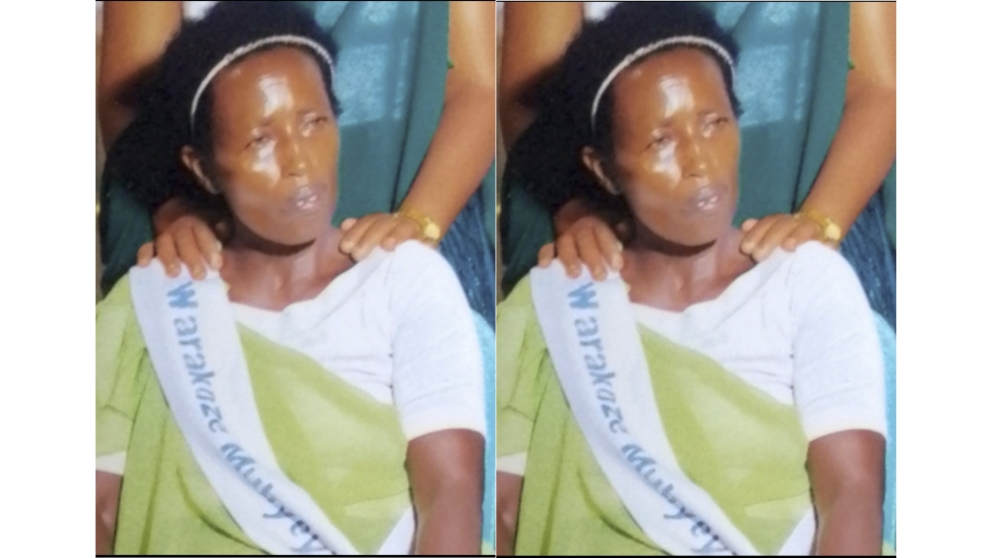
On the night of May 16–17, 2025, Theresie Nyirangirinshuti, a survivor from Shangi Sector, Nyamasheke District, was killed by unidentified assailants. She had endured 1994, only to lose her life three decades later to violence rooted in the same ideology.
Moreover, on November 14, 2024, Pauline Nduwamungu, 66, from Ngoma District, was murdered in gruesome fashion. Her body was found headless, with the head dumped in a pit latrine and the rest of her remains hidden in a compost pit near her home. She was buried on November 21.
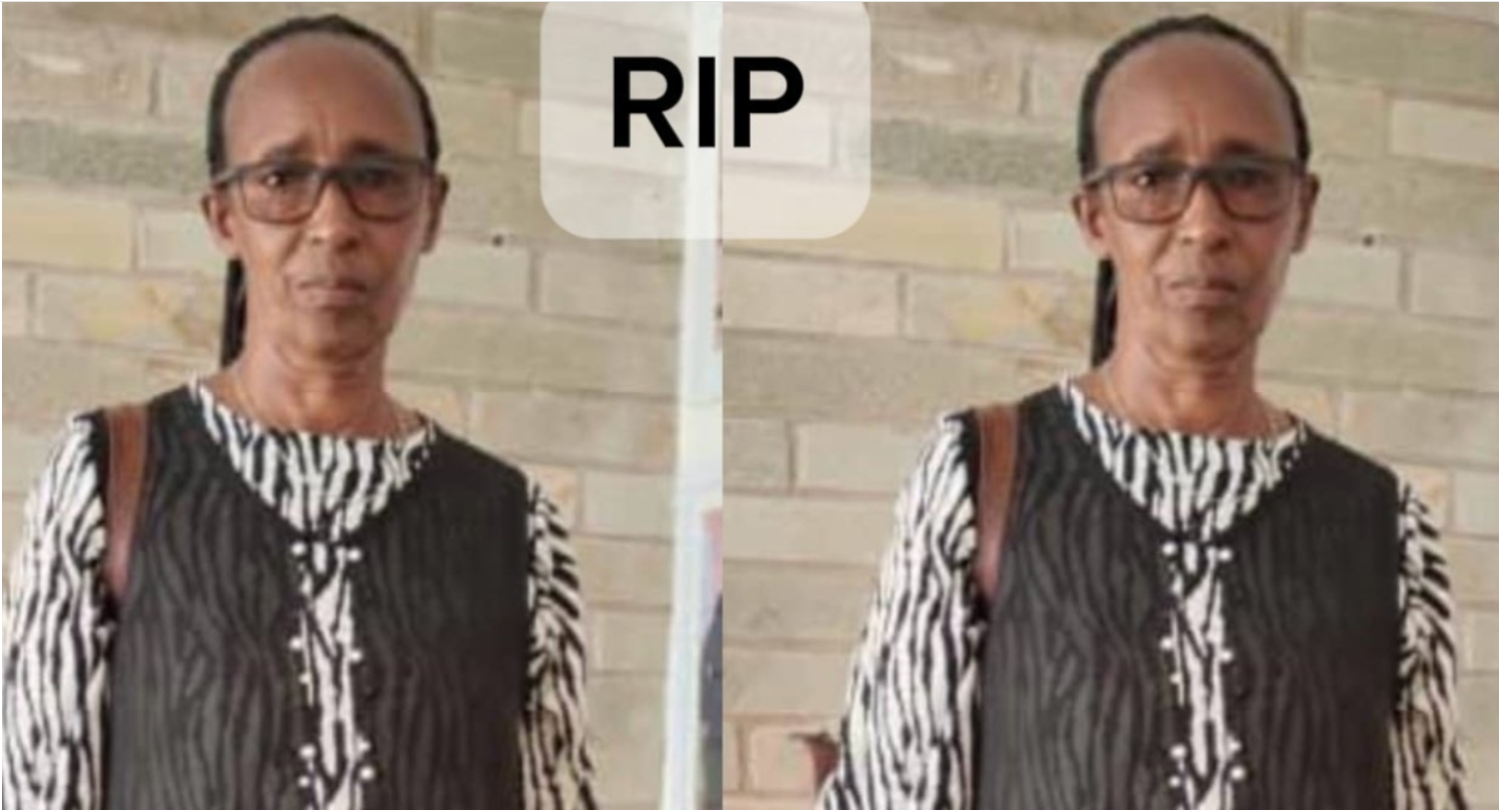
These killings shocked survivor communities, especially as they occurred during the annual Kwibuka commemoration period, when tensions and genocide ideology cases often spike.
“It strikes fear into the hearts of survivors who have already endured unimaginable suffering,” said Alphonsine Mukarugema, vice president of AVEGA Agahozo. “These crimes show that the toxic ideology of hate is still in some hearts.”
Former Prisoners Who Speak Out
While some released prisoners are implicated in crimes, others have spoken out against them. At a reconciliation forum in Ruhango in 2018, Boniface Ndekezi, himself a former genocide convict, criticized fellow ex-prisoners who harass survivors.
“I committed genocide when I was 17,” he said. “I confessed, served my sentence, and was shown mercy. But when I hear cases of survivors being abused, I feel ashamed. It does not devalue the forgiveness we have received. We must testify so that others change.”
Ndekezi’s testimony is rare, but it highlights that not all ex-prisoners wish to harm survivors. Still, for many survivors, unease persists knowing that their tormentors live freely in the same villages.
The Bigger Picture: A Persistent Crime
The Rwanda Investigation Bureau (RIB) recorded 2,660 cases of genocide ideology and related crimes between 2019 and 2023, involving more than 3,500 suspects. Half of these cases directly targeted survivors through threats, property destruction, or violence.
In 2019, there were 404 cases reported. In 2020, the number dropped slightly to 377, before rising again to 389 in 2021. By March 2023, 45 cases had filed.
According to RIB, 82 cases related to genocide ideology and associated crimes during the 31st commemoration week of the Genocide was recorded.
A detailed breakdown of the 82 cases shows that 36 of them involved violence against genocide survivors.
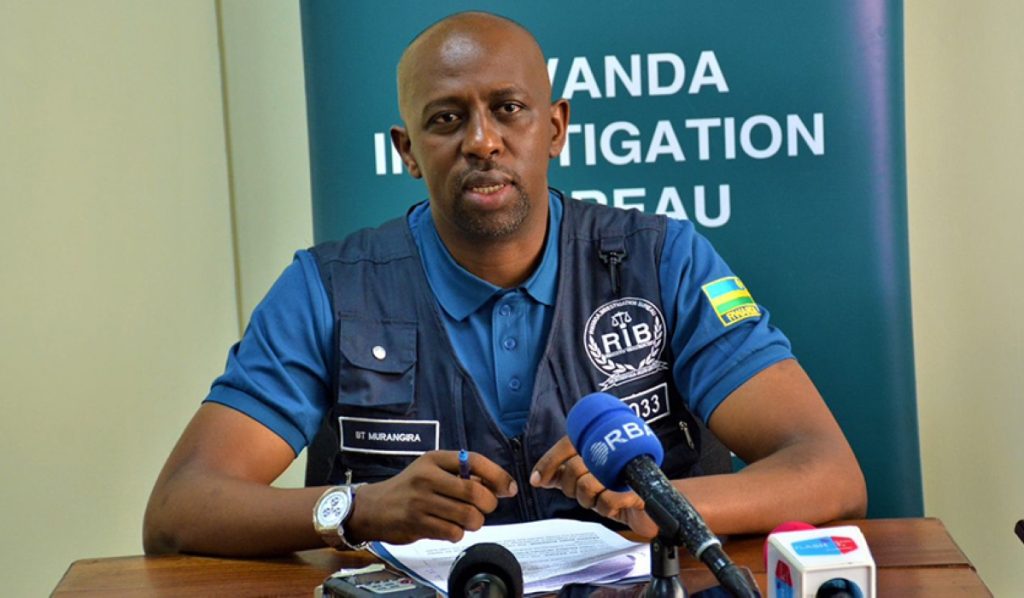
Thierry B Murangira, the RIB spokesperson pointed out that certainly, the intensity of such crimes has been reducing but there is a need to fight and eradicate such crimes.
“We all know that unity is among the pillar this country built upon and genocide ideologies and related crimes looks to destroy the element of that unity that’s why no one should commit or support such crimes,” he noted.
Following the murder of Pauline Nduwamungu, the National Prosecution Authority (NPPA) disclosed new figures on cases related to genocide ideology and attacks on survivors. Prosecutors have filed about 400 cases of such crimes over the past two years. The attacks took different forms, including verbal abuse, written threats, physical assault, and even murder. More than 430 suspects were involved, of whom 126 were female.
NPPA spokesperson Faustin Nkusi said that 206 cases of violence against survivors were filed in 2022/23, while 186 cases were filed in 2023/24. Out of these, 115 cases were referred to courts of law in 2022/23 and 111 cases in 2023/24.
Expert Views: Healing the Silent Wounds
Experts say reconciliation cannot be measured only by policy or statistics; it must also be felt by survivors in their daily lives
“Justice is not enough. Survivors also need dignity, psychological support, and reassurance that their lives are valued,” said Esther Mujawayo, a genocide survivor, sociologist, and psychotherapist who founded the Association of Widows of the Rwandan Genocide (AVEGA).
One of the most notable grassroots healing initiatives is “Mvura Nkuvure” (“I heal you, you heal me”). The method was first developed in 2005 by Dutch sociotherapist Cora Dekker in collaboration with the Anglican Church diocese of Byumba. Originally, it was an approach used in Western clinics to help military personnel and asylum seekers. In Rwanda, it was adapted into an affordable, community-based model led by trained volunteer therapists drawn from local African communities.

Since then, more than 64,000 Rwandans have completed the therapy, which brings together survivors and perpetrators in small group sessions designed to rebuild trust, restore dignity, and foster coexistence.
Community-based sociotherapy has also gained traction beyond “Mvura Nkuvure.” “These group spaces create trust and safety, which is the foundation of reconciliation, even if forgiveness takes longer,” noted one facilitator in a recent study on post-genocide healing.
Stories of Coexistence
Despite the attacks, there are inspiring examples of reconciliation that show what peaceful coexistence can look like.
In Mbyo, a reconciliation village in Bugesera District run by Prison Fellowship Rwanda, genocide survivors and former perpetrators live side by side, farming, weaving baskets, and saving money together.
“Living here has healed me,” said Marie Mukamurenzi, a survivor who lost most of her family in 1994. “I never thought I could share daily life with people who once wanted me dead, but today we cultivate the same land and raise our children as neighbors.”
Former perpetrator Jean Baptiste Nkurunziza, who served a prison sentence before moving to Mbyo, described the village as a second chance:
“We were welcomed despite our past. Here we learn to be accountable, but also to contribute positively. Reconciliation is possible when we live it every day.”
Leaders of Prison Fellowship Rwanda emphasize that Mbyo is not symbolic, it is practical. “Reconciliation cannot stay in speeches,” one coordinator said. “It has to be lived through trust, shared work, and raising children together. That is what makes villages like Mbyo special.”
National programs such as Ingando (solidarity camps), Itorero ry’Igihugu (cultural education for youth), Umuganda (monthly community service), and Girinka (“One Cow per Poor Family”) also reinforce unity by promoting shared responsibility and reducing poverty.
“These initiatives remind us that reconciliation is not only about the past, it is about building a future together,” said a reconciliation practitioner at the Ministry of National Unity and Civic Engagement (MINUBUMWE).
Government and Survivors Demand Stronger Action
The Minister of National Unity and Civic Engagement, Jean Damascene Bizimana, while addressing the 17th forum of the Unity Club Intwararumuri on November 16, 2024, at Kigali Convention Centre, called for stronger efforts to end attacks on survivors of the 1994 Genocide against the Tutsi.
“Over the past three months we have reported attacks and threats targeting Genocide survivors. Some attacks are carried out by Genocide convicts who were released after completing their sentences while others are committed by people from families of Genocide convicts,” Bizimana said, citing the case of Pauline Nduwamungu.
He said three such attacks were recorded in August, 2024, in Nyaruguru, Karongi and Ruhango districts.
The Minister said that although the number of genocide ideology and related crimes have decreased by 14 per cent of the past four years, “there are still genocide ideology and divisionism cases which we have to eradicate completely.”
Ibuka, the umbrella association of survivors, has called for tougher action. Executive Secretary Naphtal Ahishakiye said: “Those who persist must face exemplary punishment. Survivors cannot be condemned to live in fear.”
“That’s why keep working with local leaders and investigators to arrest the suspects who violate Genocide Survivors,” Ahishakiye added.
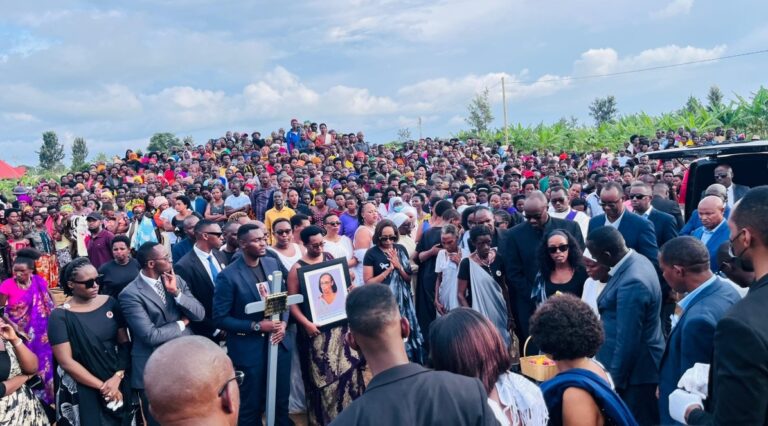
The testimonies of survivors such as Kigabo, Nyiramporampoze, Mukamana, Muhongerwa, Nyirangirinshuti, and Nduwamungu reveal a difficult truth. Reconciliation is not only about forgiveness but also about safety, dignity, and trust.
Each new act of violence reopens scars and reminds survivors of 1994. As Rwanda continues its remarkable journey of rebuilding, one question remains: can reconciliation truly succeed if survivors still feel unsafe in their own homes?
The Law Against Genocide Ideology
According to the law on the crime of genocide ideology and related crimes, a person who, in public, either verbally, in writing, through images or in any other manner, commits an act that manifests an ideology supporting or advocating for destroying, in whole or in part, a national, ethnic, racial or religious group, commits an offence.
Upon conviction, the person is liable to imprisonment for a term of not less than five years and not more than seven years, with a fine of not less than Rwf500,000 and not more than one million Rwandan francs.
The same punishment is given to a person who manifests a behavior or commits an act intended to harass, intimidate, dehumanize, boast about past killings, mock, insult a person or destroy their property on the ground that the victim is a survivor of genocide.

SUBSCRIBE TO OUR NEWSLETTER


